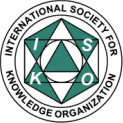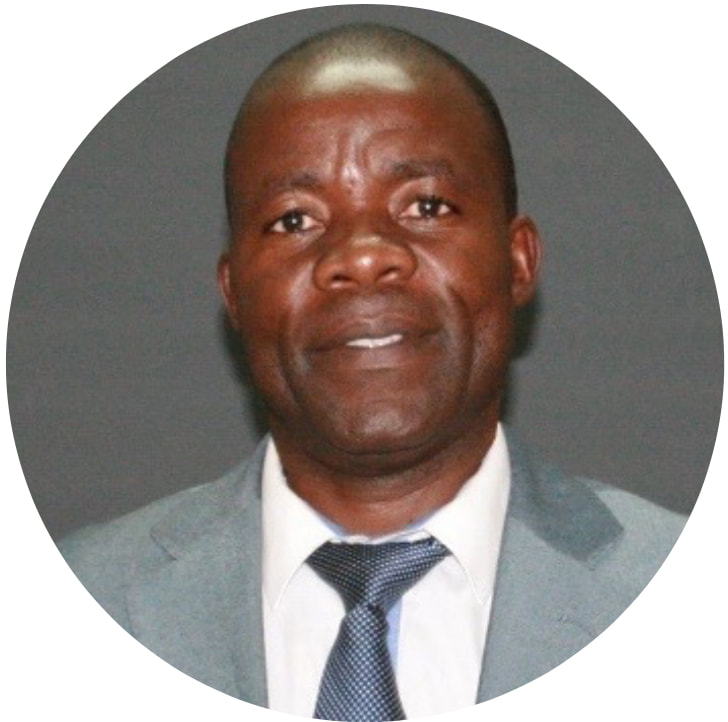how can We make sure our KNOWLEDGE MANAGEMENT is evidence-based?
Too much of knowledge management practice is ad hoc and improvised, and based on opinions, whether of management or of consultants or "gurus". Management practice more generally suffers from this as well, but knowledge management has been slow to catch up with the growing recognition of the value of evidence-based practice. Here is a quote from RealKM Magazine, a freely available and multi-award-winning web resource established specifically to support the growth of evidence-based knowledge management.
|
As has already been happening in the overall field of management and also other management disciplines such as HR, better evidence-based practice is vital for the future of KM. Organisations cannot be expected to embrace KM unless proven processes and practices are used, but sadly the management arena abounds with fads and fixes that are little better than snake oil.
However, as KM is a comparatively new field, the evidence base for what processes and practices work effectively is constantly evolving. Compounding this situation, KM practitioners often find it difficult to keep up to date with the findings of new research in KM and related disciplines such as communications, marketing, psychology, biology, sociology, and management. |
In this exciting panel, we will be joined by the founders of, and regular contributors to, RealKM Magazine, Bruce Boyes, Stephen Bounds and Charles Dhewa to discuss a range of questions including:
- How can we make our own practice more evidence-based and less opinion-based?
- What counts as evidence in knowledge management?
- Does it make sense to speak of evidence-based practice when a great deal of knowledge use is an internal act, or not susceptible to direct observation?
- Are all opinions bad evidence? How do we know good evidence when we see it?
- How do we know when our practice is evidence-based?
- What discovery methods for needs analysis and decision-making work best in an evidence-based approach?
|
Bruce Boyes
Bruce Boyes is editor, lead writer, and a director of the award-winning RealKM Magazine and has also been teaching on the University of NSW (UNSW) Foundation Studies program in China. He formerly established and taught two knowledge management subjects at Shanxi University in China. Bruce's background in KM has both technical and scientific aspects, as well as being steeped in complexity and culture. He used agile and knowledge management approaches to oversee the implementation of an award-winning A$77.4 million river recovery programme in Australia, led a knowledge strategy process for Australia's 56 natural resource management (NRM) regional organisations, and pioneered collaborative learning and governance approaches to empower Australian communities to sustainably manage their landscapes and water catchments. Bruce has a Master of Environmental Management with Distinction and a Certificate of Technology (Electronics). Stephen Bounds Stephen Bounds is an Information and Knowledge Management Specialist with a wide range of experience across the government and private sectors. He is Executive, Information Management at Cordelta, a professional services firm based in Canberra, Australia. With over 20 years of experience in delivering Information Management, Knowledge Management and Information Technology solutions, Stephen has a sophisticated understanding of technology tools and platforms, including how to avoid common pitfalls and maximise organisational benefits. He is an active participant on global KM community lists, and a passionate advocate for evidence-based and reason-based practice. Stephen established RealKM in August 2015 and was its founding editor. In early 2019, Stephen formally transitioned RealKM to a community-owned model, with the RealKM Cooperative Limited registered in the Australian Capital Territory (ACT) on 2 May 2019, and with the support of a number of patrons across the global KM community. Charles Dhewa Charles Dhewa is a distinguished knowledge management practitioner and thought leader committed to exceptional practical achievements in agriculture and rural development. Based in Zimbabwe, he is the Chief Executive Officer of Knowledge Transfer Africa (Pvt) Ltd which he founded in 2006 after realising that agriculture value chain actors needed knowledge brokering services. Working from more than 20 agriculture markets under a flagship known as eMKambo, his organisation gathers and processes data and evidence into market intelligence that is important for decision making and policy development. Charles has a specific focus on how policy in international development can become more evidence-based. His particular concern is that policy makers and development agencies take action when they have run out of options, not on the basis of knowledge and evidence. For example, governments and their partners start building marketing infrastructure and addressing sanitary issues when there is an outbreak of a disease, such as cholera or typhoid. Before that outbreak, all knowledge and evidence will be ignored or used partially. Charles has served regularly as an expert resource on KM for several United Nations agencies. Among other qualifications, he holds a Master of Philosophy (MPhil) degree in Information and Knowledge Management from Stellenbosch University, South Africa. Some of his ideas are shared through his blog . |
|
Date/Time
Venue Type of Event Who should attend Fee |
Friday 23 April, 2021, 3.30-5.00pm (Singapore)
This was a virtual session using Zoom conferencing. As we follow strict security protocols, only participants who were registered in advance, were admitted to the session. Case Discussion | Networking | Panel | Site Visit | Talk & Discussion | Workshop * Knowledge and information managers, IT professionals, search managers, corporate librarians, senior executives and general managers. This event was free to all participants. |
EVENT MATERIALS
Here are some suggested reference resources:
Evidence-Based Management Basics:
https://realkm.com/wp-content/uploads/2018/02/Evidence-based_practice.jpg
https://www.cebma.org/wp-content/uploads/Evidence-Based-Practice-The-Basic-Principles-vs-Dec-2015.pdf
Two books worth looking at:
Eric Barends and Denise M. Rousseau, Evidence Based Management (Kogan Page 2018)
Dennis Tourish, Management Studies in Crisis (Cambridge University Press 2010)
Resources referenced during the panel:
Patrick Lambe, Is KM a Pseudoscience? http://greenchameleon.com/gc/blog_detail/is_km_a_pseudoscience/
Stephen Bounds, Clinical Approach to KM: https://realkm.com/2020/10/15/towards-a-clinical-approach-to-knowledge-management/
Sarah Cummings et al. Critical Discourse Analysis: https://realkm.com/2020/07/30/critical-discourse-analysis-for-policy-analysis-a-new-tool/
Bruce Boyes Confronting Indifference Toward Truth: https://realkm.com/2021/05/04/confronting-indifference-toward-truth-dealing-with-workplace-bullshit-top-100-research-commentary-of-2020/
Deliberative Process:
Hummelbrunner and Jones, Deliberative Process: https://realkm.com/2020/01/21/managing-in-the-face-of-complexity-part-4-5-appropriate-approaches-5-deliberative-processes/
Bruce Boyes, Deliberative Process Case Study: https://realkm.com/2015/10/29/case-study-knowledge-transfer-sharing-collaborative-learning-governance/
Overseas Development Institute, Deliberative Process: https://cdn.odi.org/media/documents/7489.pdf
Psychological Distance:
Amanda Surrey, Psychological Distance: https://realkm.com/2017/02/17/psychological-distance-why-our-plans-about-knowledge-can-fail-realkm-connect-introductory-series/
Trust:
Mika Vanhala, Measuring Trust: https://lutpub.lut.fi/handle/10024/72125
Mika Vanhala, Measuring Trust dissertation summary: https://www.slideshare.net/bounds/impersonal-trust-in-organisations
RealKM OpenKM TrustRadar Diagnostic: https://realkm.com/wp-content/uploads/2021/05/OpenKM-Diagnostic-TrustRadar-1.0.pdf
Please refer to the reference resource links listed above for resources mentioned during the session.
Here are the slides that Bruce Boyes used to illustrate his introductory statement (Part 1 of video below) - download here.
This is a lightly edited transcript of the chat discussion that accompanied the panel discussion. For context, it might be useful to follow the discussion in the videos below. Download the transcript here.
Here are the videos of the session:
Part 1: Why is Evidence-Based KM Important?
Part 2: Weighing Sources of Evidence in KM.
Part 3: Practical Approaches to Evidence-Based KM.
Evidence-Based Management Basics:
https://realkm.com/wp-content/uploads/2018/02/Evidence-based_practice.jpg
https://www.cebma.org/wp-content/uploads/Evidence-Based-Practice-The-Basic-Principles-vs-Dec-2015.pdf
Two books worth looking at:
Eric Barends and Denise M. Rousseau, Evidence Based Management (Kogan Page 2018)
Dennis Tourish, Management Studies in Crisis (Cambridge University Press 2010)
Resources referenced during the panel:
Patrick Lambe, Is KM a Pseudoscience? http://greenchameleon.com/gc/blog_detail/is_km_a_pseudoscience/
Stephen Bounds, Clinical Approach to KM: https://realkm.com/2020/10/15/towards-a-clinical-approach-to-knowledge-management/
Sarah Cummings et al. Critical Discourse Analysis: https://realkm.com/2020/07/30/critical-discourse-analysis-for-policy-analysis-a-new-tool/
Bruce Boyes Confronting Indifference Toward Truth: https://realkm.com/2021/05/04/confronting-indifference-toward-truth-dealing-with-workplace-bullshit-top-100-research-commentary-of-2020/
Deliberative Process:
Hummelbrunner and Jones, Deliberative Process: https://realkm.com/2020/01/21/managing-in-the-face-of-complexity-part-4-5-appropriate-approaches-5-deliberative-processes/
Bruce Boyes, Deliberative Process Case Study: https://realkm.com/2015/10/29/case-study-knowledge-transfer-sharing-collaborative-learning-governance/
Overseas Development Institute, Deliberative Process: https://cdn.odi.org/media/documents/7489.pdf
Psychological Distance:
Amanda Surrey, Psychological Distance: https://realkm.com/2017/02/17/psychological-distance-why-our-plans-about-knowledge-can-fail-realkm-connect-introductory-series/
Trust:
Mika Vanhala, Measuring Trust: https://lutpub.lut.fi/handle/10024/72125
Mika Vanhala, Measuring Trust dissertation summary: https://www.slideshare.net/bounds/impersonal-trust-in-organisations
RealKM OpenKM TrustRadar Diagnostic: https://realkm.com/wp-content/uploads/2021/05/OpenKM-Diagnostic-TrustRadar-1.0.pdf
Please refer to the reference resource links listed above for resources mentioned during the session.
Here are the slides that Bruce Boyes used to illustrate his introductory statement (Part 1 of video below) - download here.
This is a lightly edited transcript of the chat discussion that accompanied the panel discussion. For context, it might be useful to follow the discussion in the videos below. Download the transcript here.
Here are the videos of the session:
Part 1: Why is Evidence-Based KM Important?
Part 2: Weighing Sources of Evidence in KM.
Part 3: Practical Approaches to Evidence-Based KM.
ISKO Singapore is registered in Singapore. Society registration number T15SS0160B
By continuing to use the ISKO Singapore website you are agreeing that ISKO Singapore may collect, use and disclose your personal data obtained by ISKO Singapore as a result of your use of the ISKO Singapore website. Please consult our data protection policy, including how you may access and correct your personal data or withdraw consent to the collection, use or disclosure of your personal data.
By continuing to use the ISKO Singapore website you are agreeing that ISKO Singapore may collect, use and disclose your personal data obtained by ISKO Singapore as a result of your use of the ISKO Singapore website. Please consult our data protection policy, including how you may access and correct your personal data or withdraw consent to the collection, use or disclosure of your personal data.




